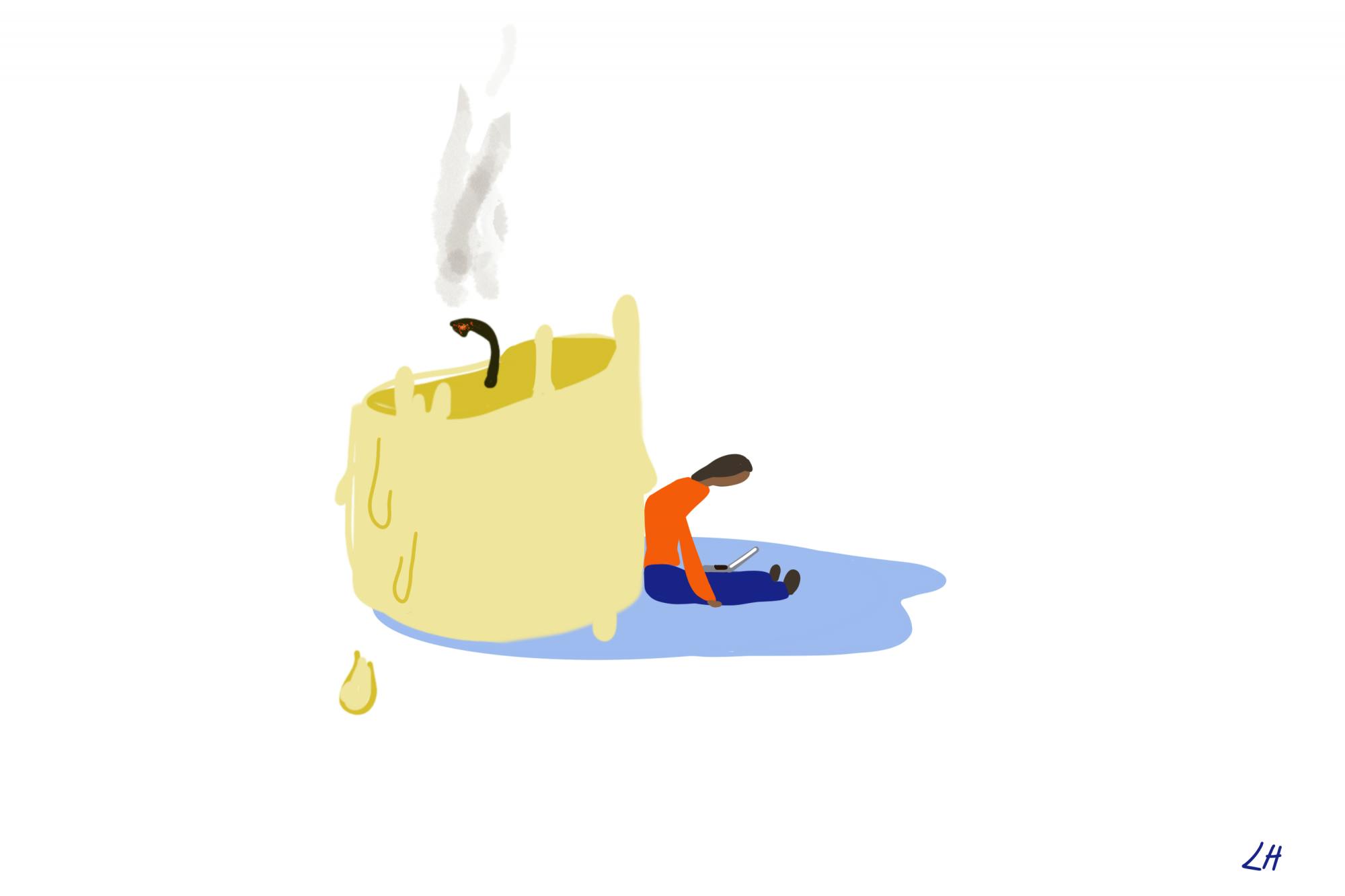As I write this article, I’ve just finished unpacking the small suitcase of clothes that I brought home for spring break. My dorm room hasn’t changed much in the last week or so, except for a layer of dust that has accumulated on the top of my chest of drawers. It really does feel like I finished my music final yesterday, rather than two weeks ago. Yet somehow, I’m going to be starting three new classes this week, all vastly different from my courses last term. While I am excited about each of these classes, there’s still a small part of me that feels like winter term just ended. And after how hard I worked, two weeks doesn’t feel long enough.
The structure of Dartmouth’s academic calendar does not exactly lessen the burnout phenomenon. As the College loves to advertise to potential students, the quarter system compresses as much material into one 10-week term as many schools cover in a 15-week semester — creating an intense, pressure-filled environment for students. While most of my friends at semester schools have an adjustment period at the beginning of the term — with a whole syllabus week rather than a syllabus day, at Dartmouth we hit the ground running. It’s not uncommon to have a professor assign a mountain of reading over a break and an essay after the first lecture. And with only 10 weeks, the time we have to work on term papers shrinks considerably. Sometimes, we’ve just finished submitting our midterms when we’re staring at the final.
This academic chaos would be enough to overwhelm most college students, but our terms are crammed with more than just schoolwork. Dartmouth’s ubiquitous Greek culture encourages students to spend multiple nights a week in crowded frat basements, staying awake through a potent mixture of alcohol and adrenaline. By the numbers, over half of eligible students are involved in Greek life, which means that pressure to socialize doesn’t just feel like the majority — it actually is. On top of all this, most students are involved in other time-consuming clubs, not to mention jobs and preparation for life after college.
When combined, these factors create quarters that pass by like fever dreams. The term passes by in a haze — usually induced by copious amounts of sleep deprivation and stress — so it’s only natural to feel exhausted afterwards. And though six weeks of Winterim provides enough time to recover after fall term, spring break can be as short as a week and a half, depending on the finals schedule. There’s simply not enough time to recover from winter before going back to the grind.
So what can we do to offset our burnout? For me, the solution comes in the form of non-academic activities. I used to be cynical about the term “self-care,” but since arriving at Dartmouth, I’ve come around to the idea. My version of self-care entails practicing bass or drums for at least 15 minutes a day — a much needed musical reprieve from the stress of day-to-day college life. For some of my friends, doing outdoor activities is similarly refreshing. When our academic calendar seems manufactured to create pressure, it’s all the more important to find activities that keep us grounded and happy, even when they don’t contribute to our transcripts.
During my toughest terms, when assignments are piling up and the stress feels blinding, I try to think about little moments that remind me why I love this place. The terms pass by in a flash, and the things I remember are not my hardest midterm questions or longest nights spent studying for exams, but the time I spent listening to the Curious George soundtrack with some friends at midnight, or when my friends and I plotted a cross country drive to Wisconsin for no reason.
So although it’s week one and you might be staring at syllabi chock-full of papers and midterms, take a moment to watch that show you’ve been meaning to check out, or text a friend and ask to go for a Woccom. Unfortunately, Dartmouth loves its traditions, so our academic calendar is not going to change anytime soon. That leaves us to make the best of each jam-packed term, even when this means occasionally being unproductive. When we return to our desks from that spontaneous Woccom, the paper will still be waiting, but just maybe, a little bit of stress will have dissipated. And at a place like Dartmouth, that’s a valuable thing.




